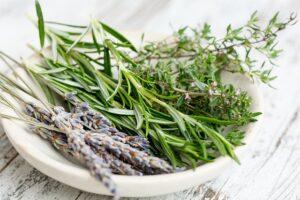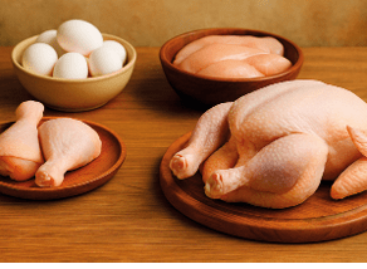There is serious potential in the medicinal plant sector
There is a high demand for Hungarian medicinal plants, and the sector has significant development potential – draw attention to the National Chamber of Agriculture and the Medicinal Plant Association and Product Council.

(Photo: Pixabay)
Currently, medicinal and aromatic plants are grown on about 30,000 hectares in Hungary. While in 2015, our country’s exports were nearly 14,000 tons, in 2022, exports were only 7,000 tons, and imports were almost twice as much as exports. There is great potential in the sector, as our country would basically not need to export, it could be self-sufficient in medicinal plants.
The medicinal plant sector stands on three legs
One leg of the medicinal plant sector is commodity production (production, collection, primary processing plant material, essential oil), the other is secondary and tertiary processing (intermediate products, herbal drugs, essential oil extracts, medicinal teas, cosmetics, herbal medicines, diet -accessories), the third is trade. The annual production value of the collection and cultivation of medicinal plants and primary processing is about 15-17 billion HUF, and the net sales revenue of primary processing is 20-29 billion forints. The total market turnover of products containing medicinal, aromatic and spice plants is HUF 60-70 billion, and the estimated net output of the entire sector is HUF 100-120 billion.
Medicinal plants, aromatic plants and herbs have been part of our everyday life for centuries, whether as medicinal teas, herbal medicines or spices
In addition, the health industry, the beauty industry and the food industry also use medicinal and aromatic plants in large quantities, as well as the essential oils and aromas produced from them, they are essential raw materials for many cosmetic, food, medicinal and chemical products. There is a constant demand for herbs and raw materials from both the industry and the population, so the continuous domestic and foreign demand provides a suitable background for the expansion of cultivation and product development. Despite this, the sector is characterized by a serious lack of raw materials, processing and distilling plants cannot use their capacity.
The NAK operates in close cooperation with the GYSZT, the herbal medicine sub-department has been operating within the chamber for eight years
As a result of a joint initiative, certain herbs – also considered as vegetables – can already benefit from support linked to production. The two organizations are also working together on the extension of license documents for small-scale plant protection products. 120-130 plant species can be collected in our country, of which about 70-80 species are regularly collected. Although collection has declined in recent decades, with the increase in production costs, the importance of collection is increasing again in the case of certain species, such as nettle and chamomile. Today, only 30-40 percent of the species to be processed come from the collection of wild stocks, and in the case of many plant species, the raw material used comes exclusively from wild stocks. The collection of medicinal herbs provides employment for around five to eight thousand people, mainly low-educated people living in disadvantaged regions. The species and plant parts collected in the largest amount: linden flower, rosehip, yarrow, goldenrod, nettle leaf, horsetail, chamomile, white wormwood, St. John’s wort, white mallow, black elder, mistletoe, horse chestnut. The main cultivated herbs are: mustard, poppy, cumin, coriander, fennel, rosehip, pitchfork, milk thistle, anise, dill, chamomile, lemongrass, mint, thyme, lavender, peppercorn.
NAK
Related news
EU poultry meat rules are changing: the 12-week limit for “free-range” labeling is being relaxed during a pandemic
🎧 Hallgasd a cikket: Lejátszás Szünet Folytatás Leállítás Nyelv: Auto…
Read more >Not a turnaround, but consolidation: an agricultural outlook for 2026
🎧 Hallgasd a cikket: Lejátszás Szünet Folytatás Leállítás Nyelv: Auto…
Read more >Related news
Innovations, success stories and awards on the same stage
🎧 Hallgasd a cikket: Lejátszás Szünet Folytatás Leállítás Nyelv: Auto…
Read more >Farewell day at the 60th anniversary EuroShop trade fair
🎧 Hallgasd a cikket: Lejátszás Szünet Folytatás Leállítás Nyelv: Auto…
Read more >NAV: Women’s Day inspections begin
🎧 Hallgasd a cikket: Lejátszás Szünet Folytatás Leállítás Nyelv: Auto…
Read more >








